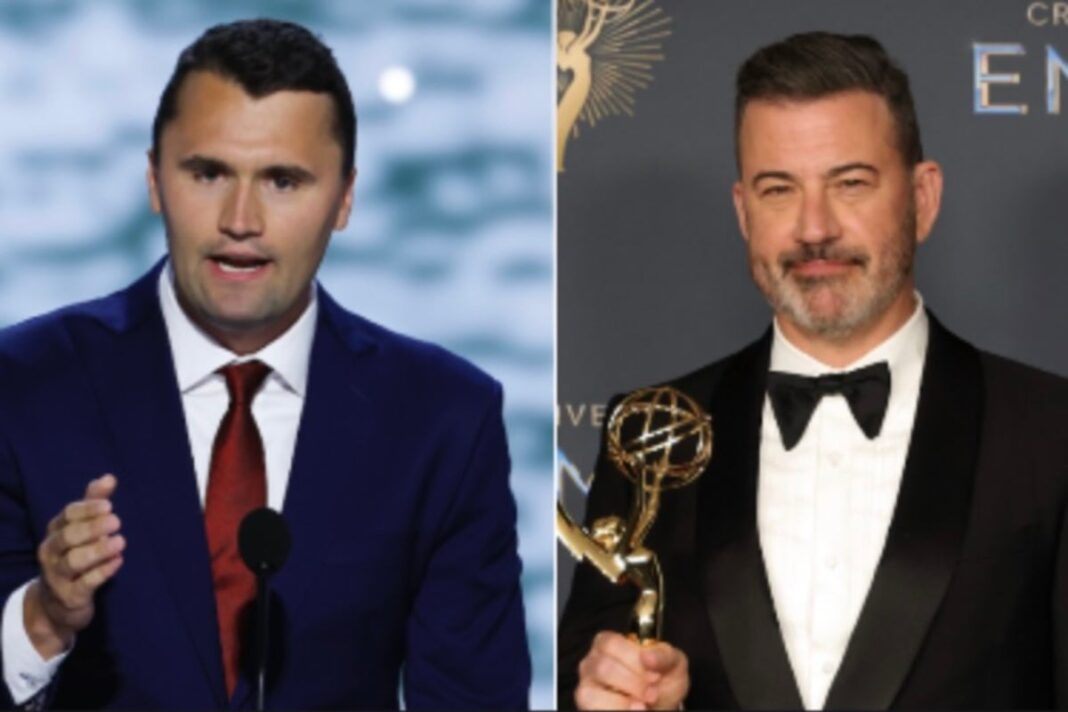The Turmoil Surrounding Jimmy Kimmel’s Suspension: A Dive into Political Commentary and Media Impact
Introduction to the Incident
Recently, the world of late-night television was shaken when ABC announced the indefinite suspension of Jimmy Kimmel’s show, Jimmy Kimmel Live!. This decision followed Kimmel’s controversial remarks regarding the tragic murder of conservative activist Charlie Kirk. This article unpacks the incident, examining its implications on media, politics, and the dynamics of public discourse.
Kimmel’s Comments Ignite Backlash
During a recent monologue, Kimmel criticized what he termed the “MAGA gang,” claiming they were attempting to capitalize on Kirk’s murder to score political points. He further mocked President Donald Trump’s reaction, saying it resembled “how a four-year-old mourns a goldfish.” Kimmel’s comments stirred significant controversy, leading to his suspension and increasing tensions in an already polarized media landscape.
The Response from ABC and the Public
In light of Kimmel’s statements, ABC quickly reacted by suspending his show “indefinitely.” An ABC spokesperson confirmed to multiple media outlets that the network sought to distance itself from the fallout of Kimmel’s controversial remarks. The decision was met with diverse reactions—while many criticized Kimmel’s lack of sensitivity, others defended the host’s right to free speech amid growing calls for accountability in public commentary.
Trump’s Reaction and Political Ramifications
Former President Trump was quick to respond, labeling the suspension “Great News for America” in a post on Truth Social. He celebrated the move as a victory for conservative values, suggesting that Kimmel’s comments exemplified a destructive trend in media discourse. Furthermore, Trump’s remarks laid the groundwork for increased scrutiny of other late-night hosts, including Jimmy Fallon and Seth Meyers, whom he deemed next on the chopping block.
The Legal Landscape: Charlie Kirk’s Assassination
The legal saga surrounding Charlie Kirk’s assassination deepens the complexity of this situation. Tyler Robinson, the 22-year-old suspect charged with aggravated murder, faces serious legal consequences, including the potential death penalty. His involvement sparked not only a national conversation around violence but also raised questions about political rhetoric and its potential repercussions in real life.
Protests and Public Sentiment
As the news unfolded, protests erupted outside Kimmel’s studio in Los Angeles. Demonstrators voiced their disdain for both Kimmel’s remarks and the media’s handling of political discourse. This public outcry highlights how deeply divided opinions are on media responsibilities and the ramifications of political discourse in entertainment.
The Broader Implications for Free Speech
The incident raises critical discussions about the boundaries of free speech within the realm of entertainment. Various political figures, including Democratic governors, have expressed concerns about the implications of Kimmel’s suspension for free expression. They argue that curtailing speech—whether through corporate decisions or public outcry—could stifle necessary debates about sensitive topics such as violence, politics, and media responsibilities.
Confessions and the Case’s Murky Details
While Kimmel’s remarks created a media frenzy, the legal proceedings against Tyler Robinson unfold quietly yet significantly. Reports indicate that Robinson confessed to friends online shortly after the incident, unveiling a troubling narrative about individuals’ disclosures in the digital age. His admissions and the ensuing investigation further complicate the public’s understanding of the events surrounding Kirk’s murder.
The Interplay of Media and Mergers: A Corporate Angle
The situation is compounded by a corporate backdrop, as Nexstar Media Group—ABC’s parent company—was in the process of a merger with Tegna. The timing of Kimmel’s suspension and the potential corporate repercussions raises questions about how mergers and acquisitions might influence content decisions and media narratives.
Conclusion: A Complex Case of Commentary and Corporate Control
In an age where political commentary often spills over into personal lives and corporate boardrooms, the suspension of Jimmy Kimmel’s show serves as a stark reminder of the responsibility that comes with public speaking and comedic expression. This incident invites an ongoing conversation about the intersections of media, politics, and individual expression in a divided nation.



